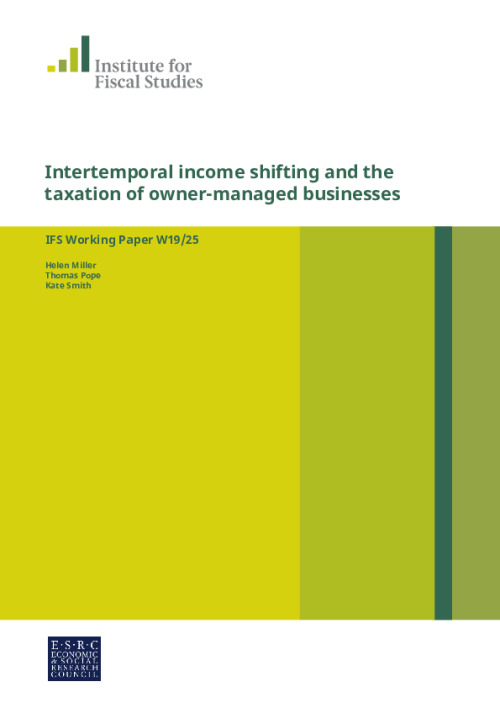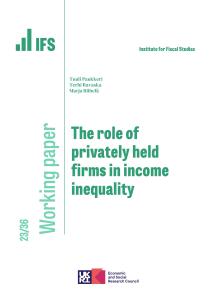Owner-managed businesses are a fast growing group; how they respond to tax is central to the challenge of how to tax labour relative to capital incomes. We use newly linked UK tax records to estimate how personal taxes affect the real economic activity and tax avoidance of company owner-managers. All of the large responses to personal taxes are attributable to intertemporal income shifting, and not to reductions in the total amount of income created. Taxable income is shifted across time to smooth income that fluctuates around tax kinks and to access preferential capital gains tax rates; these two forms of income shifting have different implications for welfare and policy. Accounting for income shifting reduces the estimated deadweight loss associated with a marginal increase in personal taxes by around 80%. Systematic retention of income within owner-managed companies is large, particularly for higher income individuals; this income is held as cash and equivalent assets, and is not associated with increased investment in business capital.












